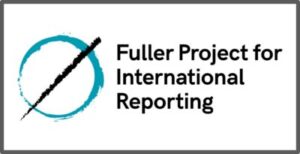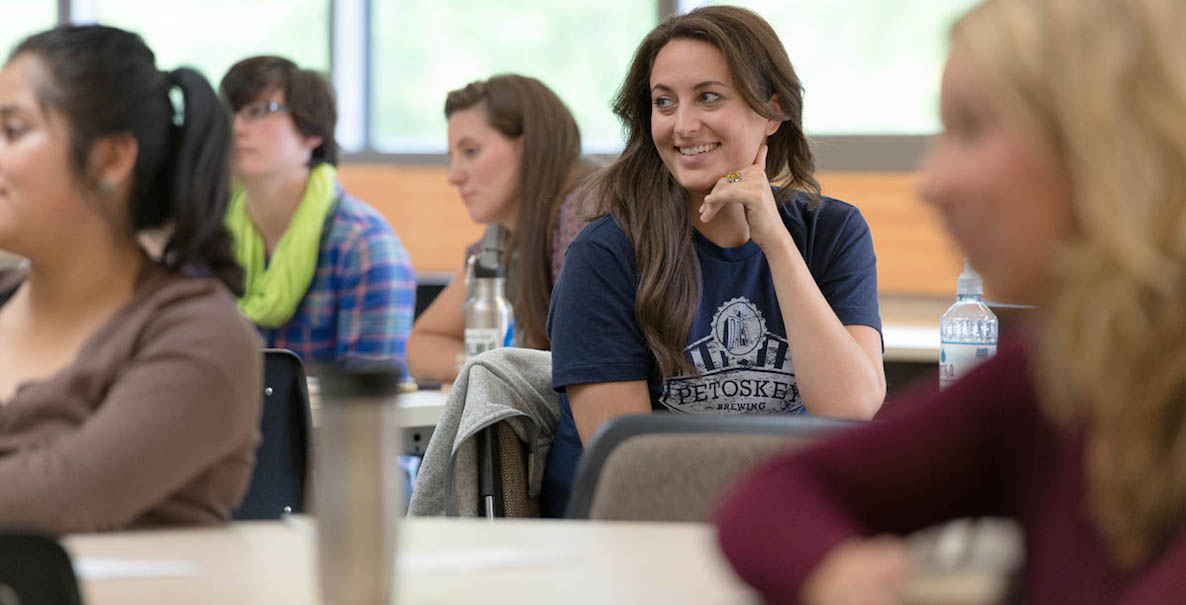![]() How do you make empowered decisions on a topic you know little about?
How do you make empowered decisions on a topic you know little about?
People are asking themselves that question a lot during this pandemic, but it applies to everyday uncertainties as well. A big one is how to save and spend money. Pre-pandemic, at least a third of Americans said they can’t cover $400 of unanticipated expense, as the Federal Reserve has repeatedly found.
One solution for improving this picture, backed by the Consumer Financial Protection Bureau and big banks like Citi, is financial coaching. The emerging field of financial coaching is based on the idea that clients can make the right decisions on their path to financial stability, only their odds improve with someone in their corner. And that person does not need to be an economist or ex-Wall Street type.
It’s rooted in behavioral psychology, but as a programmatic effort financial coaching didn’t exist before 2007. The basic premise is not altogether different from any other type of coaching, be it sports or health or executive leadership models. Financial coaches exist to provide guidance, accountability, and positive reinforcement. They don’t exist to solve problems or write prescriptions.
![]() But like a lot of things, financial coaching has been made more difficult by this moment of mass uncertainty. There’s a demand for direction and answers from someone (anyone?) who can be trusted to straight-up tell people what to do.
But like a lot of things, financial coaching has been made more difficult by this moment of mass uncertainty. There’s a demand for direction and answers from someone (anyone?) who can be trusted to straight-up tell people what to do.
“I don’t think the questions [from clients] have changed,” says financial coach Alyssa Cruz. “But it’s become more of a therapy session. It’s a lot more listening. It’s a lot more telling them it’s okay if they don’t hit their goals this month.”
Cruz is one of two coaches running a pilot program that’s served more than 250 clients, almost all of them women in Philadelphia, over the past two years. The pilot launched in June 2018 as part of the Women’s Economic Security Initiative (WESI), a regional collaborative formed to address the financial well-being of women and their families. (Disclaimer: I am a volunteer member of one of WESI’s advisory boards which wasn’t involved in the financial coaching program.)
In year one of the pilot, the group guided participants to collectively put away more than $115,000 in savings, pay off debt and become more financially “capable.” It worked so well that Women’s Way, the nonprofit overseeing WESI, received a grant to modify and expand it over another three years. That money will go to develop a training program that will teach organizations throughout the region how to implement coaching into their existing services.
“We think we can reach over 15,000 women and girls over the three years,” says Diane Cornman-Levy, executive director of Women’s Way. “This really works.”
Even before the pandemic, 25 percent of Philadelphians lived in poverty. More than 60 percent of households dealing with those conditions are headed by women, a Pew report found. And those female-headed households have been hit extra hard lately; more women are filing for unemployment claims so far in this current recession than men.
“I feel like the need has multiplied because of the coronavirus epidemic,” says Cruz. “People are more stressed right now about their finances but they’re not always willing to talk about them right now.”
What distinguishes financial coaching from other like-sounding services—financial planning, advising and literacy courses—is exactly what makes it so daunting to pull off right now.
Financial coaching is about changing habits to build wealth. But being in control of—and intentional about—our habits right now is difficult to say the least.
![]() When seeing a financial advisor, clients can expect to hear about mutual funds and investment opportunities after one or two sessions. A financial planner looks beyond investments to draw up a total asset management strategy for clients, taking into account things like insurance obligations and estate planning. And financial education encompasses a lot of programs, but it’s fundamentally about knowledge and not personal application.
When seeing a financial advisor, clients can expect to hear about mutual funds and investment opportunities after one or two sessions. A financial planner looks beyond investments to draw up a total asset management strategy for clients, taking into account things like insurance obligations and estate planning. And financial education encompasses a lot of programs, but it’s fundamentally about knowledge and not personal application.
Financial coaching puts clients in the decision-making role, forcing them to consider more deeply what they want out of the relationship, which is neither short-term nor transactional. “Some people have never thought of what they want their money to do for them,” says Tillie Jonas, the other financial coach facilitating the WESI pilot.
Coaches engage one-on-one with clients over an indefinite amount of sessions, typically unfolding over months. “I’m not there to give advice. I’m there to have structured conversations and help them figure out what their money goals are,” Jonas says. “Then, we do goal-setting around that.”
Even before the pandemic, 25 percent of Philadelphians lived in poverty. More than 60 percent of households dealing with those conditions are headed by women
The Annie E. Casey Foundation has driven research into the efficacy of financial coaching. [Full disclosure: Annie E. Casey Foundation is one of the funders of The Fuller Project, which maintains editorial independence in all reporting.] It was a foundation report in 2007 that first coined the term and directly discussed the application of life-coaching techniques to the financial domain. But the model has gained many champions since then across private, public and nonprofit sectors. Today there are at least 300 unique organizations in more than 200 different cities nationwide implementing this encouraging but unproven pedagogy.
They include $tand By Me of Delaware, on which the WESI pilot program is loosely based. A public-private partnership between the United Way of Delaware and the state government, $tand By Me reports to have coached 19,000 individuals to pay off $18 million in debt, among other financial goals achieved, within the past decade.
Like many financial coaches in an emerging field, Jonas and Cruz don’t have a degree in accounting or business. They both went through financial coursework prior to the pilot, but both have backgrounds in education and social services.
Jonas works for the Urban Affairs Coalition’s PHL Pre-K team and Cruz works for First Up, a nonprofit focused on advancing early childhood education. Both of their organizations are part of WESI, the region-wide collaborative—involving nonprofits, service providers, government offices and more—focused on empowering women.
To build out the pilot program, the WESI partners approached daycares and preschool programs across the city, gaining a foothold in 25 early childhood education centers. It was a strategic choice: By incorporating coaching services into an existing network of providers, the organizers believed they could recruit and retain parents at a place familiar to them already.
But once the information tables appeared, there was a surprise. It wasn’t just parents who expressed interest; teachers working at these centers wanted financial coaching, too.
The average salary of an ECE teacher in Pennsylvania is $31,000 a year, less than half of what elementary school teachers make ($69,000). Nationally, the ECE workforce is more than 95 percent female.
“It was definitely easier to get teachers than parents,” says Jonas. “Because teachers are there at the site and we can meet them during their lunchtime or break time.”
More than half of the participants in the WESI pilot have been teachers at early childhood education (ECE) centers who are part of the target demographic. The average salary of an ECE teacher in Pennsylvania is $31,000 a year, less than half of what elementary school teachers make ($69,000). Roughly half of all ECE educators are eligible for food stamps and other government benefits. Nationally, the ECE workforce is more than 95 percent female.
The first year, in addition to their cumulative savings, two-thirds of the parents and ECE teachers paid off $500 in debt; and the average financial capability score—a metric jointly developed by the Annie E. Casey Foundation and the Center for Financial Security at the University of Wisconsin-Madison—increased by more than 1.4 points on average per client, according to WESI’s own reporting. Other clients built up savings to put toward home ownership.
Then, midway through year two, Covid-19 struck.
The WESI pilot has been forced to pivot in more ways than one. So much of the model’s efficacy is based on trust and intimacy developed between coach and client, which is much harder to do over the phone and Zoom, says Cruz. Then, there’s the challenge of clients being more anxious about short-term fixes than long-term strategies given this pandemic moment.
![]() But maybe the biggest change for the WESI coaches has been grappling with the sudden precarity of the entire ECE sector, to which the pilot was so intricately tied. Those same ECE centers where the program ran through, they’re now shuttered across the region and face a difficult path forward. In March, the Pennsylvania Child Care Association published a survey of childcare providers that found only 28 percent believe they will be able to re-open if shut down for over a month.
But maybe the biggest change for the WESI coaches has been grappling with the sudden precarity of the entire ECE sector, to which the pilot was so intricately tied. Those same ECE centers where the program ran through, they’re now shuttered across the region and face a difficult path forward. In March, the Pennsylvania Child Care Association published a survey of childcare providers that found only 28 percent believe they will be able to re-open if shut down for over a month.
Jonas and Cruz are confronting this on the micro level with their clients. “The uncertainty of the centers is being passed down to the teachers,” says Jonas. “The pandemic could have an impact in September, with the number of teachers coming back.”
Pre-pandemic, in Pennsylvania, nearly half a million children aged 0 to 5 required childcare so their parents could work. Covid-19 has magnified the essential role that child care centers play in the economy, along with just how poorly the employees are paid. Experts worry staffing at the centers could hit a snag if the state’s 15,000 ECE teachers, paid a meager salary, make career contingency plans during the pandemic.
“I was speaking with a 20-year veteran ECE teacher who just got laid off and she’s thinking about working at Amazon,” says Cruz.
The opportunity at Amazon was a permanent one. “I told her, you can’t do that, you’re an amazing teacher. But she said she had to do this to support their family,” Cruz says.
Coalitions like Strong PA and Pre-K for PA sent a letter in March to Governor Tom Wolf calling for $200 million in stimulus—“swift, limited” action, the organizations wrote—that they say is necessary to bail out the “rapidly fraying” ECE landscape across the state. Nationally, there’s talk that barring a national bailout for ECE (in the neighborhood of $50 billion), more than half of all childcare centers could permanently close throughout the country.
Even if the sector gets through this, there’s a need for long-term financial support for ECE teachers, along with other low-income-earning women, to improve their economic conditions.
Women’s Way is still exploring options to continue the coaching at ECE centers if and when they reopen. “What we’ve seen with the pilot program is that you can save money and improve your financial situation even with a low or moderate income,” says Cornman-Levy. “People think you don’t need something like this in a time of crisis. You need coaching more than ever during times of crisis.”
Malcolm Burnley is a Philadelphia-based senior reporter with The Fuller Project, a journalism nonprofit reporting on global issues impacting women. This article is a collaboration between The Philadelphia Citizen and Fuller.
Photo by Sharon McCutcheon / Unsplash




